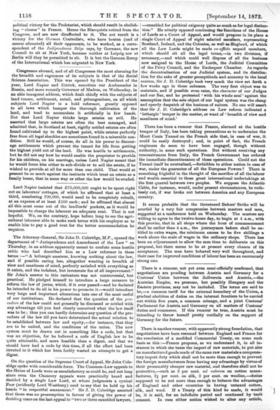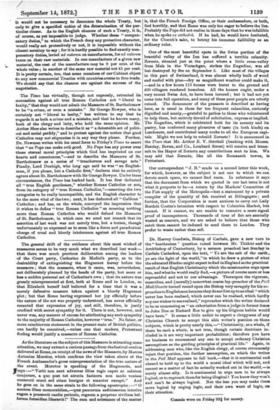There is another rumour, with apparently strong foundation, that negotiations
have been resumed between England and France for the conclusion of a modified Commercial Treaty, on some such basis as this :—France proposes, as we understand it, in all in- stances in which she taxes the import of raw materials, to put also on manufactured goods made of the same raw materials a compensa- tory import duty which shall not be more than enough to prevent the foreign manufacturers from having any advantage by virtue of their presumably cheaper raw material, and therefore shall not be protective,—such as 2 per cent. ad valorem on cotton manu- factures, 2i per cent, on silk, 3 per cent. on woollen,—duties supposed to be not more than enough to balance the advantages of England and other countries in having untaxed cotton, silk, and wool. If a Treaty of this kind be made, it would be, it is said, for an indefinite period and continued by tacit consent. In case either nation wished to alter any article, It would not be necessary to denounce the whole Treaty, but only to give a specified notice of the determination of the par- ticular clause. As to the English chances of such a Treaty, it is, of course, as yet impossible to judge. Whether these " compen- satory duties," to which the French deny any protective character, would really act protectively or not, it is impossible without the -closest scrutiny to say ; for it is hardly possible to find exactly com- pensatory duties, levied ad valorem on manufactures, for ad valorem taxes on their raw materials. In one manufacture of a given raw material, the cost of the manufacture may be 9 per cent, of the whole value ; in another of the same raw material not 45 per cent. It is pretty certain, too, that some members of our Cabinet object to any new commercial Treaties with countries averse to free-trade. We should say that the chances are against the success of the negotiation.



































 Previous page
Previous page